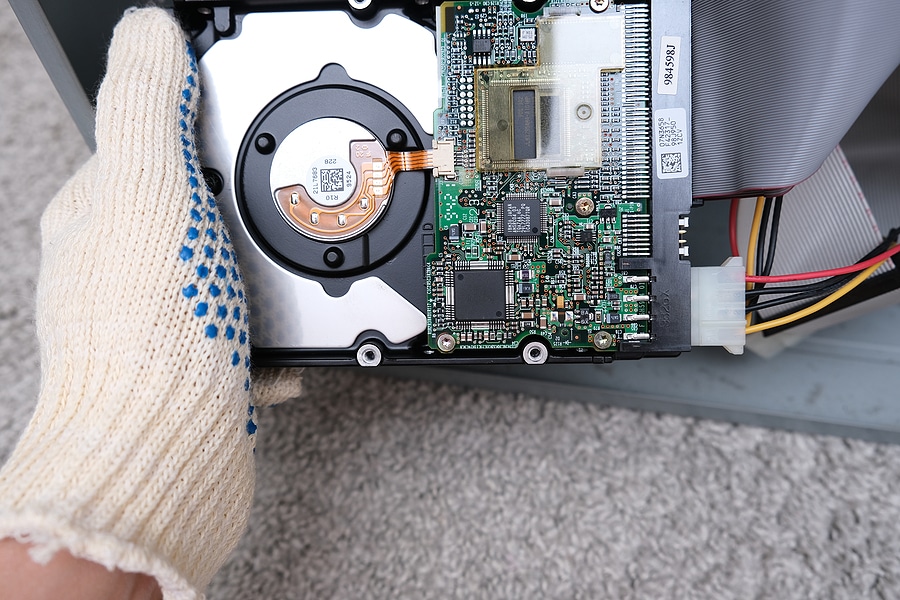How Often Should Corporate Hard Drives Be Wiped?

Your organization’s hard drives contain sensitive information. If an expert were to look through them, they’d be able to find the following:
- Banking and payment credentials
- Customer and employee personal information
- Private correspondence
- Proprietary business data
- Access to your systems and applications
A business cannot simply delete or even format a hard drive to ensure security and privacy. Removing this information requires professional hard drive wiping that meets NIST standards. There are several main occasions when businesses should wipe their hard drives.
Hard Drive Disposal
A business should never throw any hard drive into the trash or employ any other nonprofessional disposal method. There have been cases where confidential information was retrieved from discarded hard drives that an organization believed were destroyed.
Hard drive wiping before disposal ensures that confidential information is gone from the hard drive and cannot be retrieved. There are more steps to proper hard drive disposal, and any organization that handles wiping can also implement those steps.
Carelessness during removal is the most significant security risk for private information on hard drives. Be very conscious while you’re undergoing this process.
During Any Reformatting
The regular turnover of confidential information makes currently active hard drives a security risk within organizations. Even if a hard drive is now being used for non-confidential activities at the current time, any past confidential files could still be retrievable. When hard drives are formatted—whether for use in another computer or for performance—an actual wipe is in order.
The simple fact of the matter is that your organization will forget which hard drives have been used for what confidential applications. Over time, there will be plenty of opportunities for unauthorized access to the hard drives. Eventually, personal information will be compromised and potentially lead to severe consequences.
After Use for High-Priority Confidential Files
If a hard drive has been used as storage for critical files that require the highest security standards, it should be reformatted as soon as the company stops using it for that purpose. Once the confidential files are deleted or transferred, keeping an additional hard drive is an unnecessary risk.
Companies that don’t do so are just leaving another potential entry point for unauthorized access. There’s no valid reason to leave the drive unwiped, and there is every reason to wipe it.
From Time to Time
Even if hard drives aren’t being used for critical applications, being transferred to a new computer, or otherwise formatted, an occasional wiping is a good security practice. Again, confidential information accumulates over time without your realizing it.
Establishing a regular schedule for hard drive wiping ensures that carelessness doesn’t lead to data breaches. It is a prudent solution for any organization that takes its asset management seriously.
Secure Hard Drive Wiping in North Dakota
SEAM provides NIST-compliant hard drive wiping and destruction in North Dakota. Our team values the security of your business and adheres to all necessary standards when wiping your hard drives.
For any secure enterprise asset management services, you can contact SEAM today for a risk assessment.
SEAM provides IT recycling and data destruction services including onsite shredding and hard drive wiping to South Dakota, North Dakota, Minnesota, Iowa, and Nebraska.
Schedule a pickup or contact us for more information.





